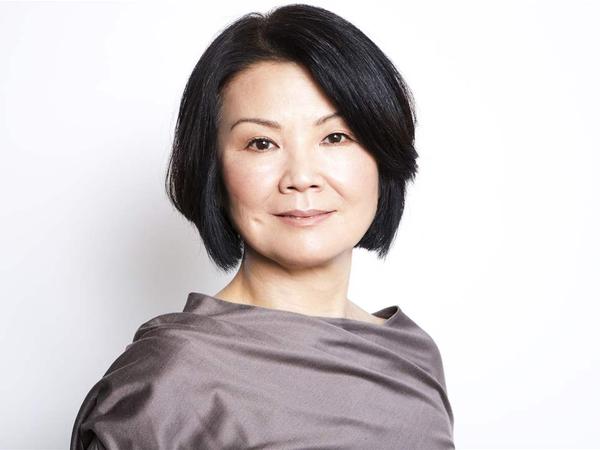Crossing a Cultural Divide

Jazz composer and arranger Toshiko Akiyoshi was born in 1929 and lived much of her young life in Japan — a life that was very much influenced by World War II and the bombing of Hiroshima. Things came musically full circle for her when, later in her life, she wrote a 3-part suite called “Hiroshima: Rising from the Abyss” and debuted it in Hiroshima on the 56th anniversary of the bombing. She has spent a career honoring her heritage and culture, while blazing a multicultural trail all her own.
Akiyoshi was first captivated by jazz when a record collector introduced her to the sounds of Teddy Wilson singing “Sweet Lorraine.” She was hooked and began learning to play the piano. She was discovered in 1952 by American pianist Oscar Peterson while she playing at a little club on the Ginza. With his help she put out her first album in 1953, “Toshiko’s Piano.” The Japanese version was called “The Amazing Toshiko Akiyoshi” and sold very well. In 1956 she was awarded a full scholarship to the Berklee School of Music– including her plane ticket to Boston — and became the first Japanese woman to attend the prestigious school.
In 1959 she married sax player Charlie Mariano and they had a daughter, who today is a professional musician playing under the name of Monday Michiru. A decade later Akiyoshi married another sax player, Lew Tabackin, and the three resettled in Los Angeles. The first album they did together was called “Kogun” – a Japanese term meaning one-man army, which was a huge commercial success in Japan. Eventually they formed a big band called The Toshiko Akiyoshi Jazz Orchestra with Lew Tabackin but that, too, was more successful in Japan than the U.S., where the big band sound had faded from the forefront of jazz. She spent many years touring with smaller bands in order to keep her big band afloat but, after seven years of playing Monday night gigs at New York’s Birdland, she disbanded the group in 2003. She said she was frustrated by the lack of record contracts for big bands and that she wanted to return to playing solo piano.
Despite some frustrations along the way, Akiyoshi received much acclaim during her career – including 14 Grammy nominations and, in 2007, she was named NEA Jazz Master by the U.S. National Endowment for the Arts. She was also the subject of a documentary called “Jazz is My Native Tongue.”
Akiyoshi’s music has always been influenced by her heritage, bringing Japanese themes, harmonies and instruments into her work. She is considered a top composer and arranger in both Japan and the United States, and has truly built a bridge spun on cultural harmony between both nations.
9(MDA3NDU1Nzc2MDEzMDUxMzY3MzAwNWEzYQ004))
Become a Member
Join the growing family of people who believe that music is essential to our community. Your donation supports the work we do, the programs you count on, and the events you enjoy.
Download the App
Download KUVO's FREE app today! The KUVO Public Radio App allows you to take KUVO's music and news with you anywhere, anytime!